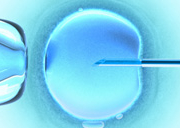Wisdom of God or medical wisdom?
 I have been working as a midwife for a few years now. As a believer, I am constantly fascinated by God’s design and wisdom and have been from day one of my training.
I have been working as a midwife for a few years now. As a believer, I am constantly fascinated by God’s design and wisdom and have been from day one of my training.
Sometimes it appears to me as a midwife that in the last few decades, science has been catching up with what was always there and designed by God for very good reason. One example is delayed cord clamping and the vital importance of letting the cord pulsate after the baby is born, regardless of the mode of delivery. This prevents babies from developing anaemia. The medical community has caught up with how important it is to be hands-off for the first, ‘Golden Minute’ (and a bit longer if circumstances allow) to just let God’s wonderful design occur. But it took people like Amanda Burleigh, who recognised that there was something important and perfectly designed occurring between the birth of the baby and the delivery of the placenta, to change practices. As T S Eliot wrote, ‘Where is the wisdom we have lost in knowledge? Where is the knowledge we have lost in information?’.
We now know that deferring cord clamping for at least 60 seconds, regardless of the mode of birth, should be routine practice because of all the known benefits. Although it is undeniable that there have been huge advancements in science over the history of humanity, have we not also lost God-given wisdom and even common sense in some areas? Hosea 4: 6 reminds us that ‘my people are destroyed for lack of knowledge’.
Delayed cord clamping is particularly beneficial for preterm infants. Increases the baby’s blood volume. In contrast, immediate clamping can impact blood flow and affect transition from fetal to neonatal circulation. The WHO recommends early umbilical cord clamping (less than 60 seconds) when a neonate is asphyxiated and requires resuscitation. But new evidence suggests that resuscitation is best achieved alongside optimal cord clamping, with a staggering 25 per cent reduction in mortality for preterm infants. Indeed, the Resuscitation Council concurs that initial resuscitation interventions can be safely undertaken with the cord intact. In essence, delayed cord clamping is a simple, effective, and God-given strategy to save lives.
A Cochrane review in 2013 found that infants who had not benefited from delayed cord clamping were twice as likely to be iron deficient at three to six months compared to those who had. One of the arguments against delayed cord clamping is that it is thought to increase rates of jaundice requiring phototherapy. However, new evidence suggests that physiological hyperbilirubinemia (jaundice) may have beneficial effects in reducing the growth of some pathogens and thus protecting babies against overwhelming sepsis.
Another example of this in early life is the importance of skin-to-skin contact between the mother and baby to regulate the baby’s breathing and heart rate, and to establish bonding, milk flow, and boost oxytocin. This is something that has happened for centuries until birth became more medicalised and we lost some of God’s perfect design along the way.
A significant example is breastfeeding and the countless benefits this has for the mother and baby. God, in his wisdom, gave women (wherever possible) the ability to feed their babies. Those moments where mothers nurse their little ones are incredibly beneficial for bonding, reassurance, and comfort for both mother and baby. Breast milk has outstanding positive properties for nutrition, transfer of immunity, and so much more. Formula does not get anywhere close to it in quality, and frankly, is that any wonder? In countries where sanitation is poor, there is no need to use any intermediate container or equipment to transfer the milk to the baby and risk introducing infection.
Genesis 1:26-27 tell us God created us in his image – It is no wonder our bodies, souls, and beings are just so amazing! Furthermore, the account in Genesis tells us God was pleased with what he had made, and for good reason!
I wonder how many other areas of medical practice would benefit from just observing and trying to understand how God created us and what his intention was all along? It seems that we get superior results when respecting his way instead of being so quick to intervene. Proverbs 16:16 says ‘How much better to get wisdom than gold, to get insight rather than silver’ – it could literally save lives! I am so often in awe of God’s wonderful creation in my day-to-day life at work and find it a privilege to care for his people. His wisdom is definitely far above man’s wisdom!
When answering a parent’s questions on breastfeeding, pregnancy, family dynamics or relational issues, I often find it useful to go back to God’s original design and the way we were created to best advise them. It is like a compass when faced with daily decision-making and more complex situations.
This verse from James 1:5 could form part of our daily prayers as we navigate interactions with patients and their families; ‘If any of you lacks wisdom, you should ask God, who gives generously to all without finding fault, and it will be given to you.’
Proverbs 4:7 ‘The beginning of wisdom is this: Get wisdom. Though it cost all you have, get understanding.’
Sophie Gidet qualified as a midwife three years ago












Leave a Reply
Want to join the discussion?Feel free to contribute!